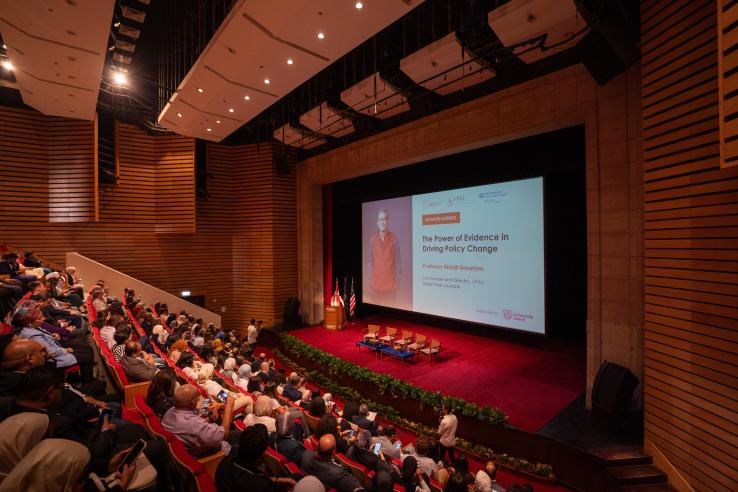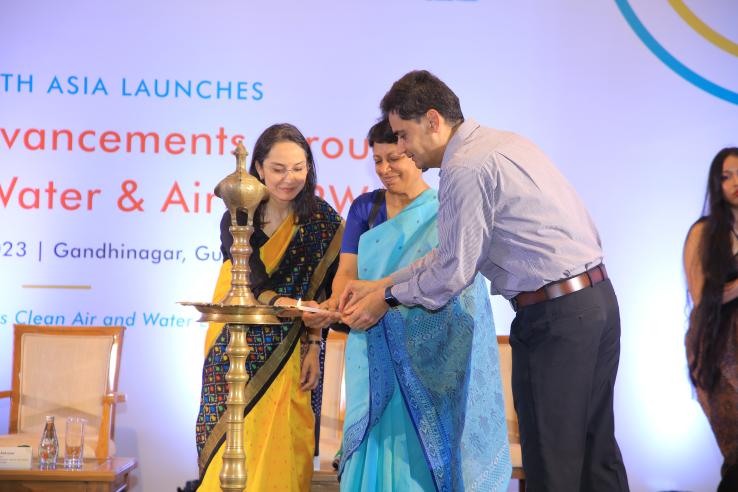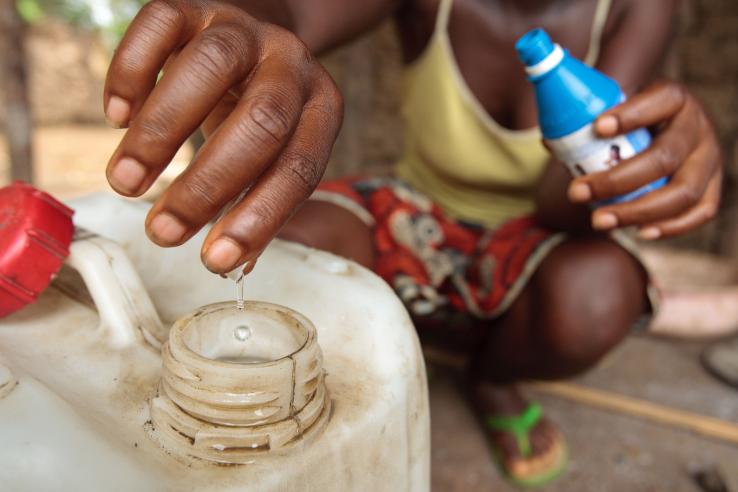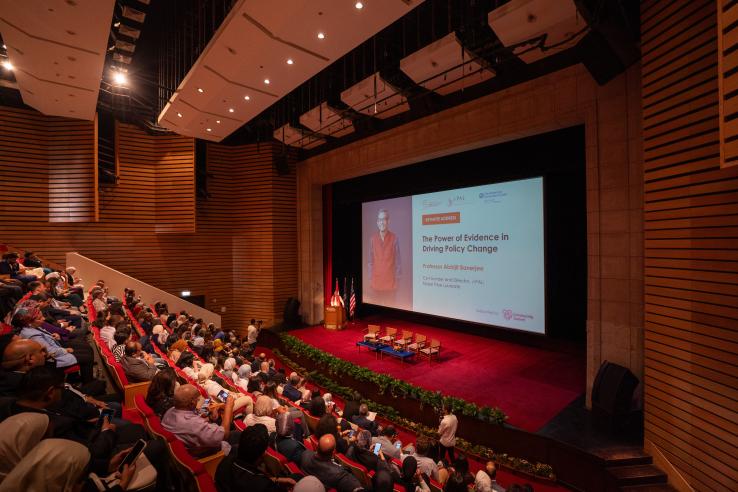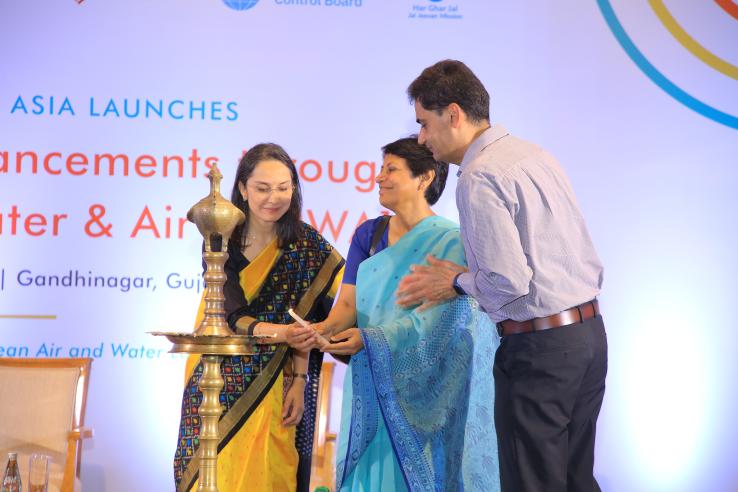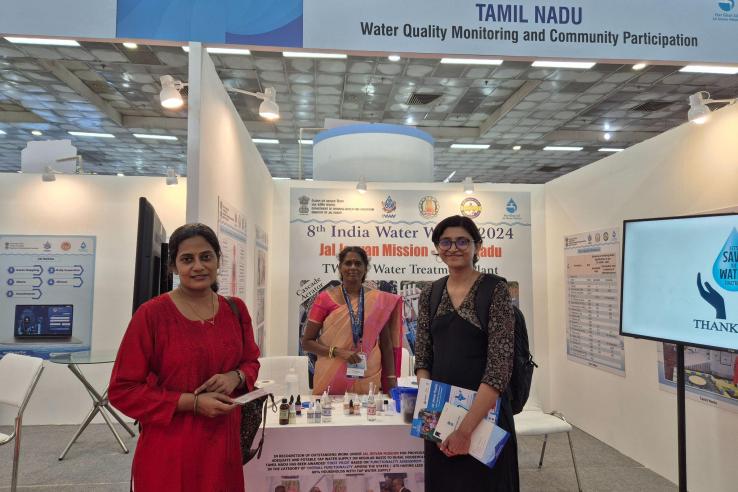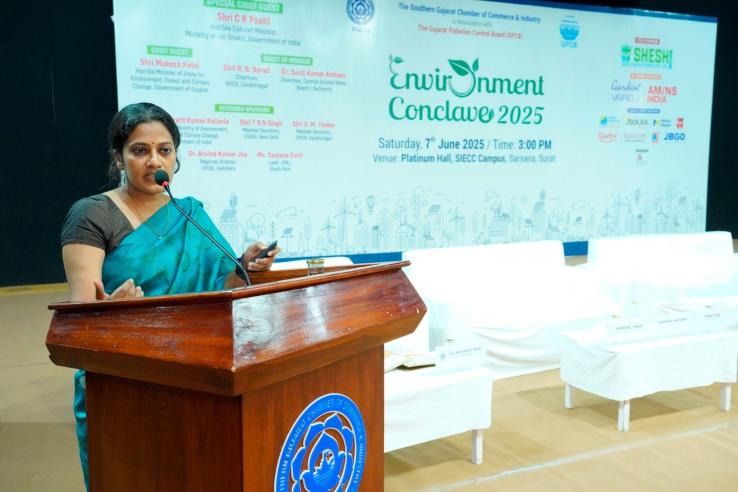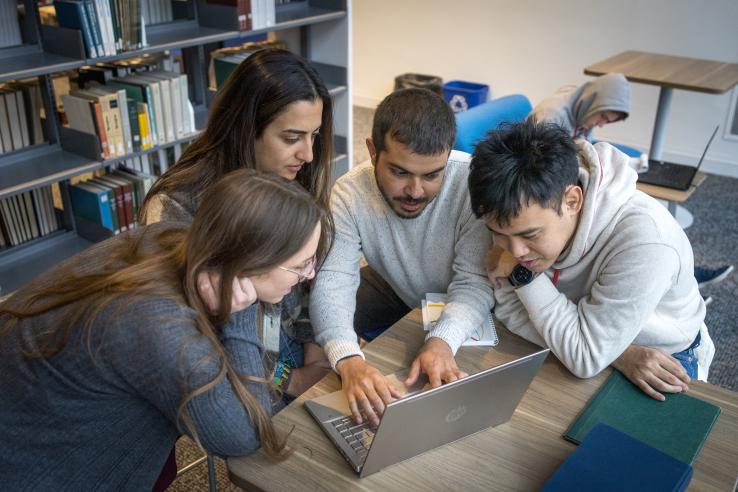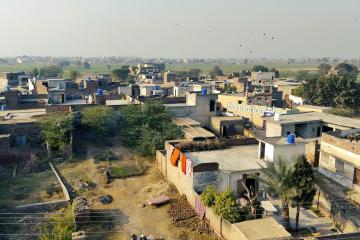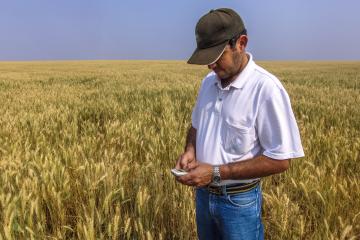Displaying 3211 - 3225 of 8491
Blog
J-PAL Middle East and North Africa was established in 2020 in response to growing recognition of the need to embed evidence into decision-making across the region. Our goal was not simply to conduct randomized evaluations, but to work hand-in-hand with governments and development practitioners to...
Event
J-PAL South Asia launched the SARWA initiative in Gandhinagar to design and scale solutions for air and water pollution, in partnership with government and supported by Community Jameel.
Blog
J-PAL Africa has launched a new policy portfolio, Scaling Access to Safe Water in Africa (SASWA), designed to support governments in integrating and scaling water treatment programs.
Update
J-PAL Updates
In the July edition of our newsletter, we celebrate five years of J-PAL Middle East and North Africa and their work to embed rigorous evaluation and learning in policy systems across the region, highlight how the private sector and funders can catalyze change, and share takeaways from an event...
Event
J-PAL South Asia launched SARWA, a new initiative to support governments in designing, evaluating, and scaling evidence-based solutions for clean air and water, in partnership with Community Jameel and key public agencies in India.
Event
J-PAL South Asia participated in the 8th India Water Week to engage with policymakers and partners on collaborative approaches to strengthen water resource management through the SARWA initiative.
Event
At the 18th EEAP webinar, J-PAL South Asia’s SARWA initiative presented research findings on how behavioral insights and smart technologies can drive more effective energy efficiency strategies across the Asia Pacific.
Event
At the Environment Conclave 2025, J-PAL South Asia shared insights from 15+ years of work in Gujarat on environmental regulation and introduced SARWA’s efforts to support evidence-based approaches to air and water quality.
Event
Join the course team for a live webinar to explore the Data, Economics, and Design of Policy MicroMasters program. Learn how this flexible, online graduate-level program—taught by MIT faculty—can help you build practical skills in data analysis, economics, and policy design.
Blog
Elise Huillery is a Professor of Economics at Paris Dauphine University. Her research focuses on policies addressing lack of education and the psychological barriers to individual progress out of poverty. From the humanitarian projects of her youth to the policy research she leads today, Elise...
Blog
COVID-19 has disrupted and altered labor markets across the globe. Through the Jobs and Opportunity Initiative, we are supporting urgent research that helps us understand how vulnerable workers around the world are being impacted by COVID-19, and how to design effective policy responses to protect...
Person
Person
The Evidence Effect
Governments can adopt high- and low-tech approaches to raise resources through improved taxation.
The Evidence Effect
Phone-based monitoring is a cheap, accessible way to ensure government service providers are doing their jobs well.
